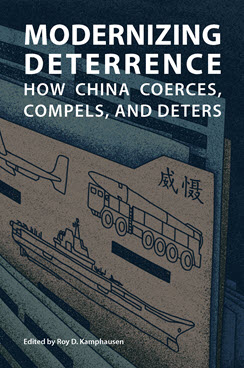The People’s Liberation Army and Crisis Management during Xi Jinping’s Second Term
This chapter examines China’s crisis management diplomacy following the 19th National Congress of the Chinese Communist Party.
EXECUTIVE SUMMARY
MAIN ARGUMENT
China has shown a strong preference for crisis management mechanisms when it is on the defensive or at a disadvantage, requires a tool to freeze a new status quo, or needs to consolidate gains. When China is on the offensive, or when its goal is to change the status quo, crisis management regimes tend to be an obstacle. But this is not always the case; even revisionist foreign and security policies sometimes need stability and a reduction of tensions. Overall, however, China’s preference for crisis avoidance or crisis prevention mechanisms that address the root causes of conflicts, in the form of high-level strategic guidance provided by political leaders, is characteristic of Chinese security policy. This top-down approach focused on political trust is opposite a bottom-up approach centered on risk avoidance. For the U.S., Japan, and India, building crisis management regimes with China is important to increase transparency and reduce the risk of collisions or other incidents that could trigger severe crises.
POLICY IMPLICATIONS
- Crisis management diplomacy between China and the West suffers from poor Track 2 channels as a result of strategic tensions and Covid-19 restrictions. The resumption of crisis-management Track 2 dialogue with China should be a priority and requires high-level political intervention.
- Meeting China halfway on crisis management is necessary. Mixed regimes that combine a crisis management approach centered on risk reduction with China’s preference for crisis prevention communication platforms could address the concerns of both sides.
- Demands for crisis management diplomacy should be backed by a robust force posture. Given that China sees the benefits of crisis management when it is on the defensive, offensive deployment could help demonstrate the importance of transparency, communication channels, and reciprocal measures in terms of force posture.
- The collapse of the China-India crisis management regime during the border clashes in the Himalayas can provide valuable lessons about which elements of the regime were deliberately circumvented and how it can be improved as a result.
Mathieu Duchâtel is Director of the Asia Program at Institut Montaigne in Paris.


